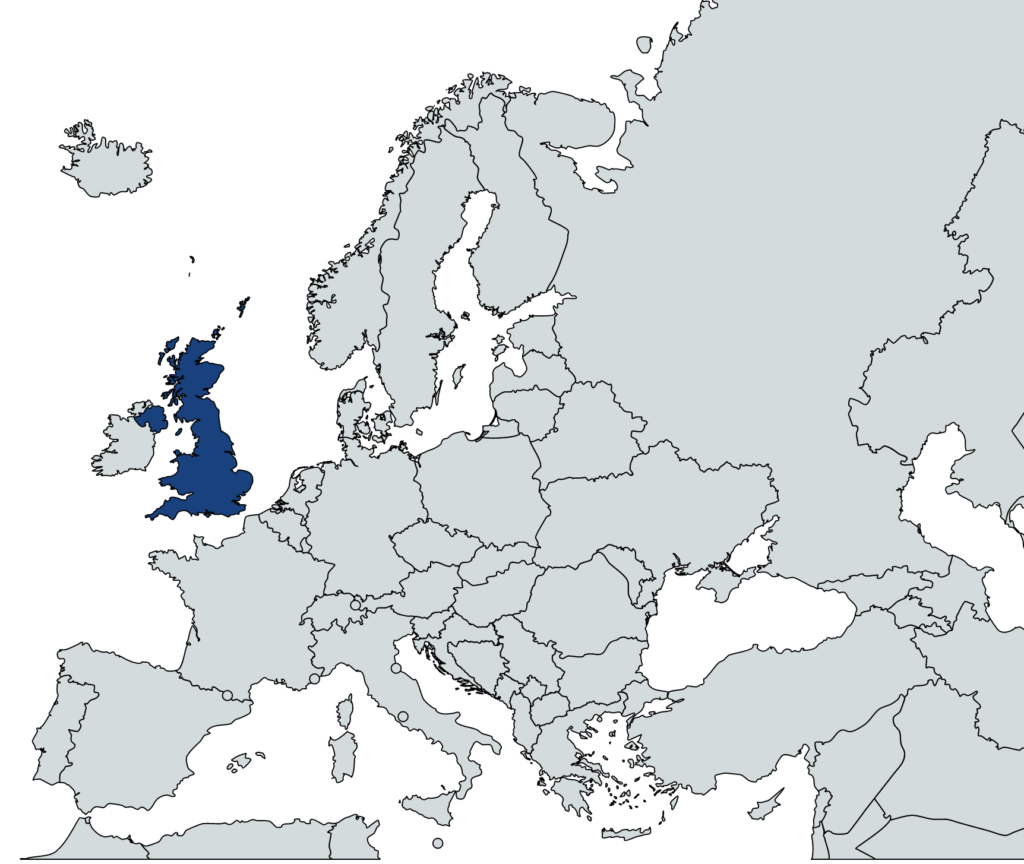DataKind
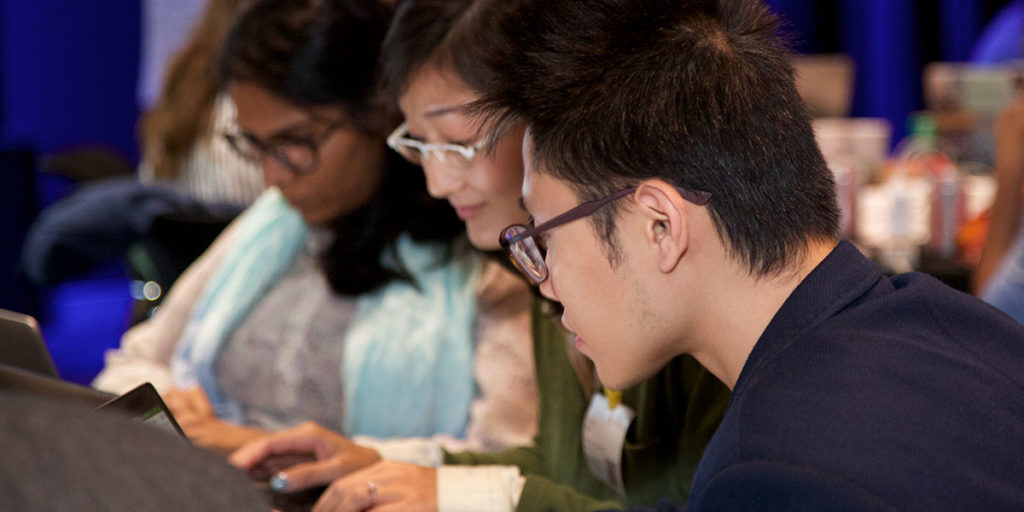
DataDives are high energy, marathon-style, 48-hour events where nonprofits work alongside teams of data scientists, developers and designers to use data to gain insight into their programs, address key problems in the communities they serve and advance their missions. These inspiring community events welcome 50-150 data scientists and technologists to collaborate and together analyze and visualize data sets to provide partner organizations initial insights or prototypes to inform their work and create real world change.
Using data for good
Software, sensors and mobile phones produce a goldmine of data. Today, most companies are working closely with data scientists to get the most out of this data to better serve their customers. Datakind works with non-profits to uncover the power of data science and predictive analytics for their mission-driven organizations. Through a DataDive or two-day hackathon-style event, Datakind brings together volunteer data scientists and social change organizations to solve key problems in their communities.
A group of ‘Data Ambassadors’ or experienced volunteers work closely with the nonprofits during the six weeks leading up to DataDive to identify the most salient data questions, and to prepare or ‘clean’ the datasets for the DataDive. Participating in a DataDive serves as a unique opportunity for volunteers to learn and test out new skill sets, build cross-industry connections, and utilize their data science talents to produce actionable, meaningful results for mission-driven organizations.
The latest DataDive took place in July 2019, hosted by the Elsevier office in London. We also collaborated on a DataDive in London in November 2018, as well as in New York in July 2018 (here and here) and in London in November 2017 (here and here).
Machine Learning and Disaster Risk Management
In 2018, DataKind and the Elsevier Foundation have partnered on a DataCorps Disaster Relief project with the World Bank’s Global Facility for Disaster Reduction and Recovery (GFDRR) in support of the Sustainable Development Goals. The project analyzed high-resolution satellite imagery to create a scalable algorithm to distinguish among different building structures in order to identify rural areas susceptible to large-scale natural disasters. It aims to aid disaster risk reduction and recovery efforts in various developing countries.
The project was inspired by a one that DataKind previously piloted in rural Kenya and Uganda. Here, DataKind was able to develop a deep learning algorithm using satellite imagery to identify thatch and metal roofed homes as a way to determine which villages were most in need, given that metal roofed homes tend to signal higher household incomes. While the algorithm ultimately was not implemented, the project demonstrates the potential for nontraditional data sources like satellite imagery and cutting edge techniques like machine learning to help fuel the work of social change organizations by helping them automate time-consuming processes, understand the communities they serve and ultimately reach more people in need.
Beneficiary group: The 2019 DataDive worked with 3 non-profits:
- Street League supports unemployed 16-24 years old to move into employment using the power of sport, teaching them key life and work skills they need for sustainable employment.
- Mind is driven by the needs of people experiencing mental distress by offering a wide range of services and support in London.
- The Mix provides a free, confidential multi-channel service offering support for under 25 year olds – so that all young people are be able to make informed choices about their physical and mental wellbeing, to live better lives.
Budget: $25,000
- Turn ideas into technical projects – Turn nonprofits’ initial data challenges into a technical project scope that meets their needs.
- Provide answers – Use the DataDive event to uncover answers to the questions that the nonprofits have posed.
- Build capacity – Work with nonprofit partners to ensure that they develop a greater understanding of data use and data science and how to sustainably embed these skills in their organization.
- Increase data maturity – Improve the ability of the nonprofits to use data to develop their senior leadership’s engagement in and understanding of predictive analytics; ensure that staff have the critical tools they need to use day to day.
- The July 2019 DataDive was held at the Elsevier London office.
- 100 data scientists involved, including 3 ‘Data Ambassadors’ leading and managing the project after conception, and teams of 20-30 pro-bono data scientists supporting each non-profit throughout the weekend
- 3 charities supported
The London chapter of DataKind run DataDive projects on a rolling basis and have organized 30 to date, 3 of which have been supported by the Elsevier Foundation. Our aim is to continue supporting this critical data change management work in the nonprofit sector.
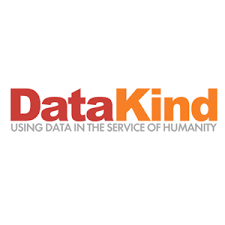
Read about the partnership:
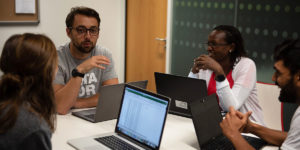
#DataDive London: changing the world one data scientist at a time
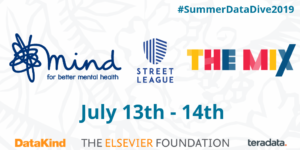
Summer DataDive 2019
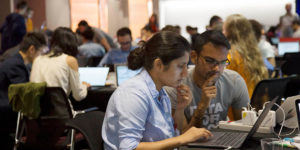
How Elsevier is helping charities use data for good

#DataDive in action: how can data scientists help nonprofits change the world?
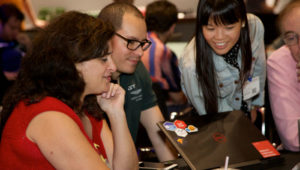
Discovering the Art of the Possible for Machine Learning and Disaster Risk Management
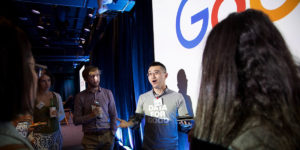
You too can be a sexy data unicorn — and other lessons from my first DataDive
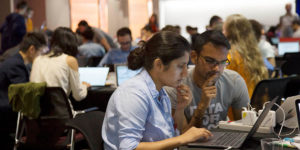
#DataDive NYC: Follow the volunteer data scientists, statisticians, coders and hackers as they build solutions for human rights

New in disaster science: using machine learning and maps to see who’s vulnerable
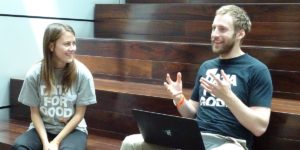
How data scientists are tackling hunger and social change
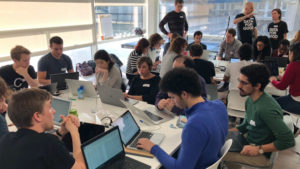
#DataDive UK: Follow data scientists and developers in a hackathon for charities
News

Challenge winners pioneer eco-friendly sanitary pads and climate resilience in medicinal plants

Winning Chemistry projects tackle waste management and extreme climate conditions with innovative real-world solutions and a focus on gender equity

Five Pioneering Women Scientists from the Global South Honored with the 2025 OWSD-Elsevier Foundation Award for Transformative Health Research
